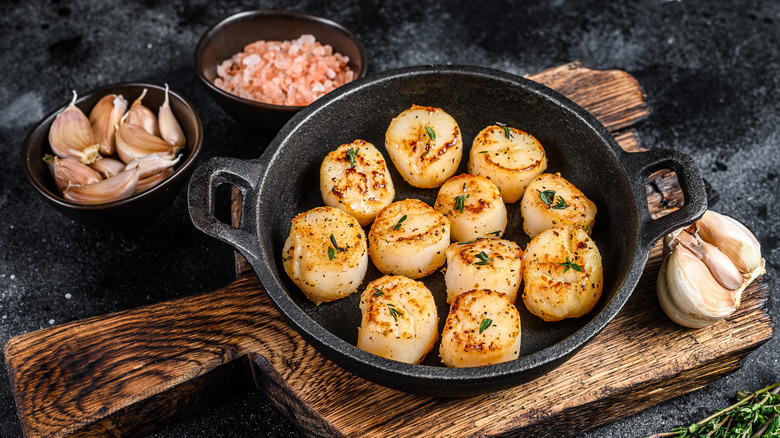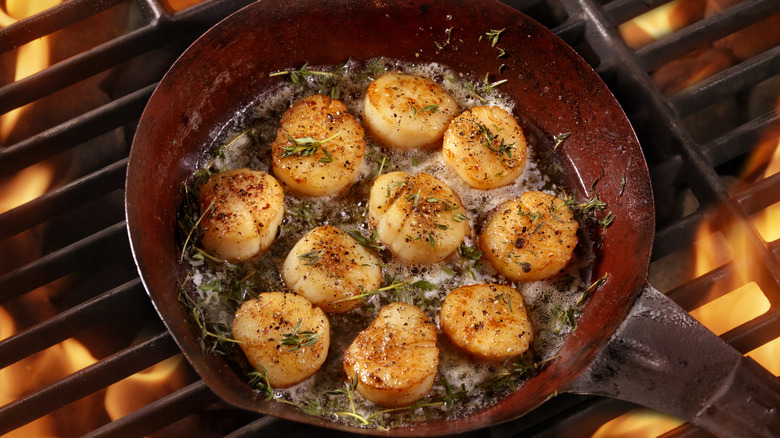Why You Should Think Twice Before Cooking Scallops In Butter
Scallops are an easy and delicious way to spice up your food routine since all scallops really need is a quick sear in the pan. Your hand may already be reaching for the butter to slather up the pan, but don't melt any butter just yet. To achieve a good sear on your scallops, you need the pan to start off ripping hot, and that means you need a cooking oil that can take the heat.
Butter has a relatively low smoke point, meaning that it doesn't take much for the milk solids in the butter to start to burn. The temperature that your pan needs to reach to achieve a proper sear on your scallops is well above this smoke point. If you were to try, you would end up with black spots on your scallops that aren't going to add anything worthwhile to the flavor. That doesn't mean you can't use butter at all, though.
For the base cooking oil, you'll want to use a neutral oil with a high smoke point, such as vegetable or canola oil. You'll get the temperature you need without burning anything that way. If you're still intent on adding rich, buttery flavors to your scallops, simply wait until they've started to crisp up, then mix the butter with the oil at that point. The butter won't have time to burn, meaning you get all the flavor without the headache of a ruined meal.
Switching it up
If you don't want to use oil, ghee is another viable alternative to butter. Ghee has a smoke point of 485 degrees Fahrenheit, which is considerably higher than butter's smoke point of 350 degrees. Ghee is butter that's been concentrated by evaporating the water and milk liquids, leaving only a sturdy hunk of butterfat behind. If rich flavor is what you're going for, ghee could be just the trick.
That said, oil is still the ideal ingredient for the job. Its neutral flavor isn't going to compete with the subtle taste of the scallops, allowing you to season them as you please. You'll need to consider what type of oil you use, though. Olive oil is a popular kitchen staple but it isn't necessarily good for this particular task. Extra virgin olive oil has a smoke point that's similar to butter at 350-410 degrees (depending on the brand), so it's just as likely to burn before you've had a chance to put the scallops in the pan. While you won't get the burnt black dots on your scallops that you would with butter, you're still going to be infusing your sweet seafood morsels with a nasty burnt oil taste. Make sure that you're using a type of oil that's capable of handling higher heat, and you'll be just fine.

